In Focus: Taking research to greater heights
For a young medical school, LKCMedicine has taken big strides towards realising its vision of Redefining Medicine and Transforming Healthcare. With a strong emphasis on transformative research, the high impact work by our team of scientists has put Singapore on the world map.
This year, LKCMedicine researchers published more than 200 papers in the top ten per cent of scientific journals such as Nature and The Lancet. In the ongoing fight against the pandemic, our infectious disease experts continue to contribute significantly to COVID-19 research.
The latest update by Stanford University on science-wide author databases of standardised citation indicators attests to the School’s research excellence. Nearly 20 per cent of LKCMedicine faculty including LKCMedicine Dean Professor Joseph Sung and Vice-Dean, Research Professor Lim Kah Leong, who is also the President's Chair in Translational Neuroscience and Research Director for Biomedical and Life Sciences, NTU, were listed among the top two per cent of the most-cited scientists in the career long citation impact category.
More recently, the Clarivate Highly Cited Researchers 2021 list named Prof Sung and LKCMedicine Professor of Infectious Diseases Laurent Rénia among 6,600 international scientists. The closely watched list identifies and celebrates the world’s most influential scientists in terms of their impact on the research community, as measured by the rate at which their works have been cited by others over the last decade.
The School’s research funding has also been increasing every year, having won major national programmatic grants awarded by the Ministry of Education, National Medical Research Council, and the Agency of Science, Technology & Research as well as international grants from EMBO and the World Health Organization (WHO).
Driving transformative research
In line with the School’s vision, the motivation of LKCMedicine’s research is to shape future medicine and healthcare through disruptive discoveries and inventions that are of national and global impact.
Our research programmes focus on addressing therapeutic priority areas that are relevant both locally and globally. The five key research foci are strategic programmes that directly address Singapore’s healthcare challenges of tomorrow, including caring for its rapidly ageing population. Intersecting with these programmes are cross-cutting themes for which the School has unique strengths.
To drive transformative research, the School has appointed Research Programme Directors and clinical Co-Directors to lead each theme, working closely to bring medicine from bench to bedside.
Flagship programmes
- Neuroscience & Mental Health – Director: Professor George J. Augustine, Co-Directors: Associate Professors Mythily Subramaniam and Nagaendran Kandiah
- Nutrition, Metabolism & Health – Programme Director: Associate Professor Yusuf Ali, Co-Director: Associate Professor Lim Su Chi
- Population & Global Health – Director: Professor John Chambers, Co-Director: Professor Lim Tock Han
- Respiratory & Infectious Diseases – Director: Professor Laurent Rénia, Co-Director: Associate Professor David Lye
- Skin Diseases & Wound Repair – Director: Professor Maurice van Steensel, Co-Director: Associate Professor Tey Hong Liang
Cross-cutting themes
- Data Science: Programme Director – Assistant Professor Bernett Lee
- Developmental Biology & Regenerative Medicine – Programme Director: Professor Philip W Ingham
- Microbiome Medicine: Programme Director – Associate Professor Sunny Wong
- Medical Education: Programme Director – Professor Jennifer Cleland
Key focus on impactful research
One of the School's key thrusts is producing impactful research to transform healthcare through excellent translational research. LKCMedicine research translates knowledge discovery in biomedical sciences to impactful outcomes through innovation and directly impacting healthcare practices in a way that will create better outcomes, more affordability, or better access.
With Singapore facing an increasingly ageing population, the School has embarked on a key initiative to use Artificial Intelligence (AI) and Robotics technology to improve the health and well-being of the elderly under the leadership of LKCMedicine Dean Prof Sung. In collaboration with other NTU Schools and Colleges, as well as with the National Healthcare Group (NHG), the initiative will harness AI and Robotics to enhance healthy ageing and improve clinical outcomes.
“AI and Robotics have huge potential in transforming medical care, but few ideas have been translated into clinical practices, such as in elderly care. The technology could be used to detect some diseases earlier and for the elderly to monitor their conditions at home or with the help of their family members, which will make it more convenient for them. With COVID-19, there is a move towards this concept of taking care of ourselves at home with equal efficacy,” said Prof Sung.
Elaborating on the emphasis on impactful research, Prof Lim who heads the School’s research arm said, “Impact is at the front and centre of what we do. One of our key areas of focus is pioneering impactful research outcomes that will lead to scientific excellence at LKCMedicine and translation to better health outcomes for the community.”
To achieve this, Prof Lim established LKCMedicine’s five flagship research programmes to find solutions to clinical issues that the School is engaged in.
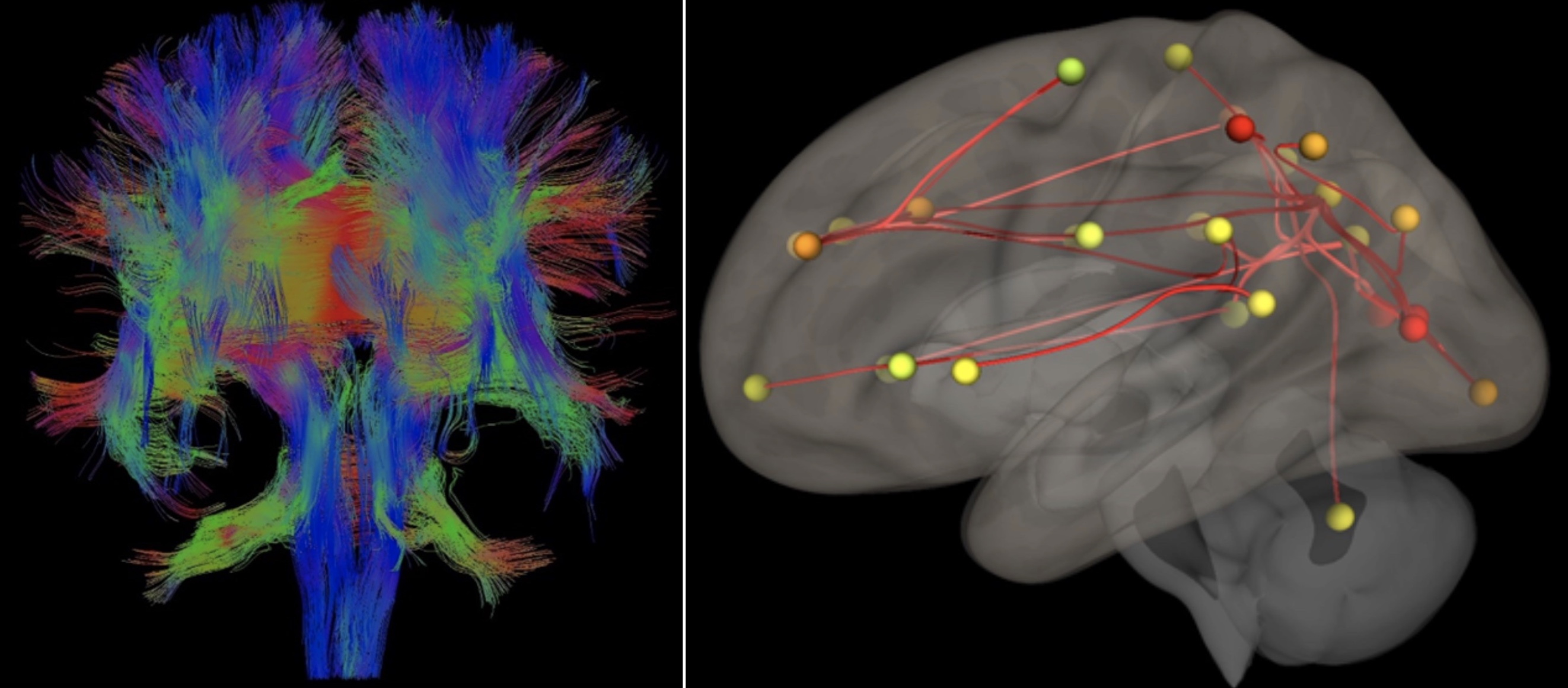
Under the Neuroscience & Mental Health theme, research interests range from the molecular biology of the brain to human cognition and brain disorders. With the unifying research themes of neurodegenerative disorders, brain cell biology and neural circuits, the key research areas include shedding light on the brain mechanisms that cause dementia, partnering with the Institute of Mental Health to generate new insights into the etiology of psychiatric disorders, and understanding the basic mechanisms of brain function.
These research efforts are aided by facilities such as the Brain Bank Singapore, a joint partnership between LKCMedicine, the National Neuroscience Institute (NNI), NHG and the NUS Yong Loo Lin School of Medicine. It provides a national resource of post-mortem brain and spinal cord tissues for vital research into disorders affecting the human brain. The brain tissues are collected via a donor scheme and preserved optimally for use in ethics committee-approved scientific research studies.
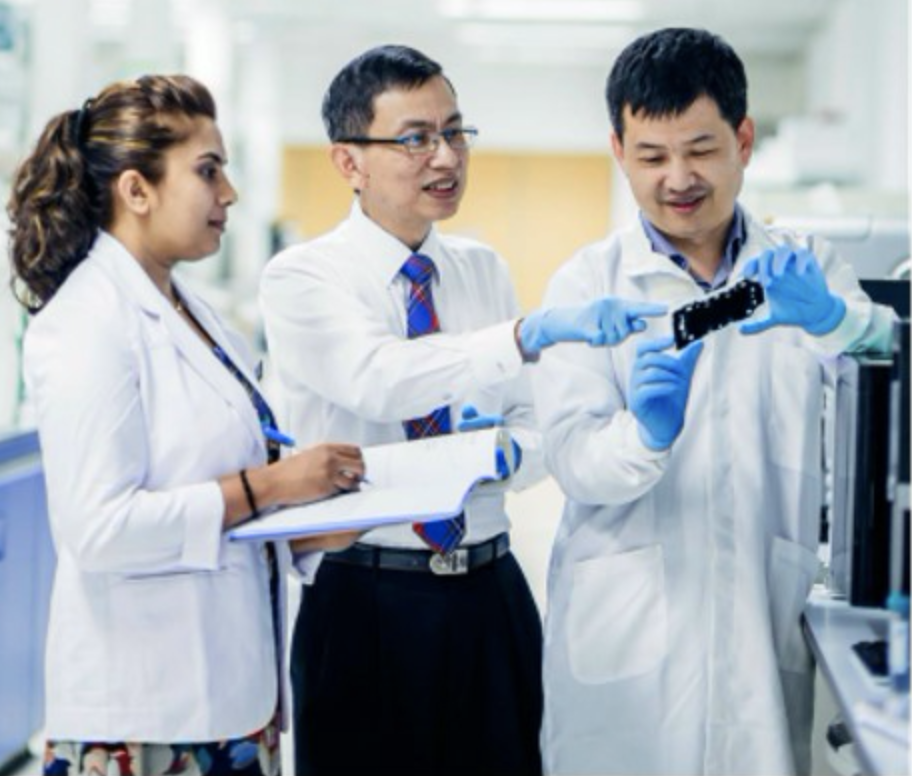
The Nutrition, Metabolism & Health programme’s overarching aim is to understand the developmental and environmental basis of obesity, diabetes, related gut and metabolic disorders and to translate this understanding into disease alleviation and prevention to maximise human potential. This covers the prevention and intervention of diabetes and obesity, understanding nutrition and microbiome health for the alleviation of obesity and related cancers as well as characterising inflammation in East Asian obese and diabetic patients.
The research team, together with NTU’s School of Materials Science and Engineering, is developing insulin nanoparticles that may one day become the basis for an oral medicine, an alternative to insulin injections for diabetic patients. In Singapore, the number of diabetics is expected to grow to 1 million – almost a fifth of the population – in 2050. Insulin therapy is an important part of treatment for diabetes and delivering insulin orally would be preferable for patients because it causes less pain than jabs.
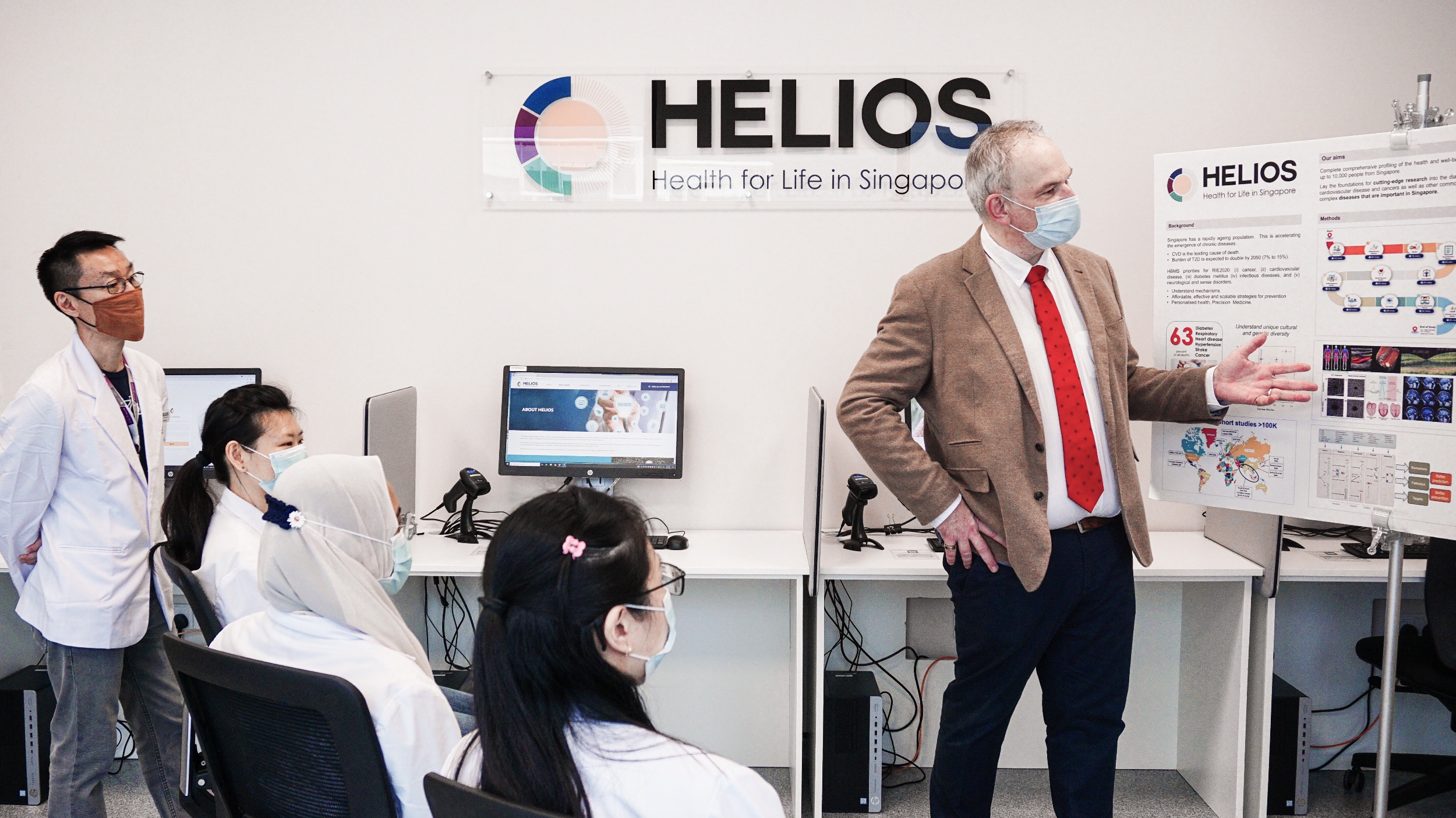
Research by the Population & Global Health theme seeks to understand the behavioural, social, environmental and molecular factors that influence health in Asian populations, and to translate these insights into effective, population and community-based approaches that promote well-being.
This research theme hosts the Health for Life in Singapore (HELIOS) population study with the goal of creating a data resource pool that would enable researchers at LKCMedicine, NHG and other health partners to investigate new approaches in predicting, preventing and treating chronic diseases such as obesity, diabetes, cardiovascular diseases and common cancers. HELIOS recruited its 10,000th participant in October.
Chief Investigator for HELIOS, Prof Chambers, who is also Chief Scientific Officer for the Singapore National Precision Medicine (NPM) programme, has led the completion of Phase 1 for whole genome sequencing and DNA methylation profiling of 10,000 Singaporeans, with linkage to selected research phenotypes, and opportunities to further the understanding of genetic and genomic variation in Asian populations. In the second phase of the NPM programme, the team will carry out genome sequencing on 150,000 people, including the participants of HELIOS and SG100K, to advance molecular epidemiological research.
Hosted under the same research theme, the WHO Collaborating Centre for Digital Health & Health Education supports WHO's wider vision to improve the digital health competencies and capacity of the health workforce. LKCMedicine Professor Josip Car, who is the director, leads comprehensive reviews towards the synthesis of authoritative evidence, ultimately informing key decision-makers in the astute use of digital health education, particularly for under- and post-graduate education, and lifelong learning across all health professions.
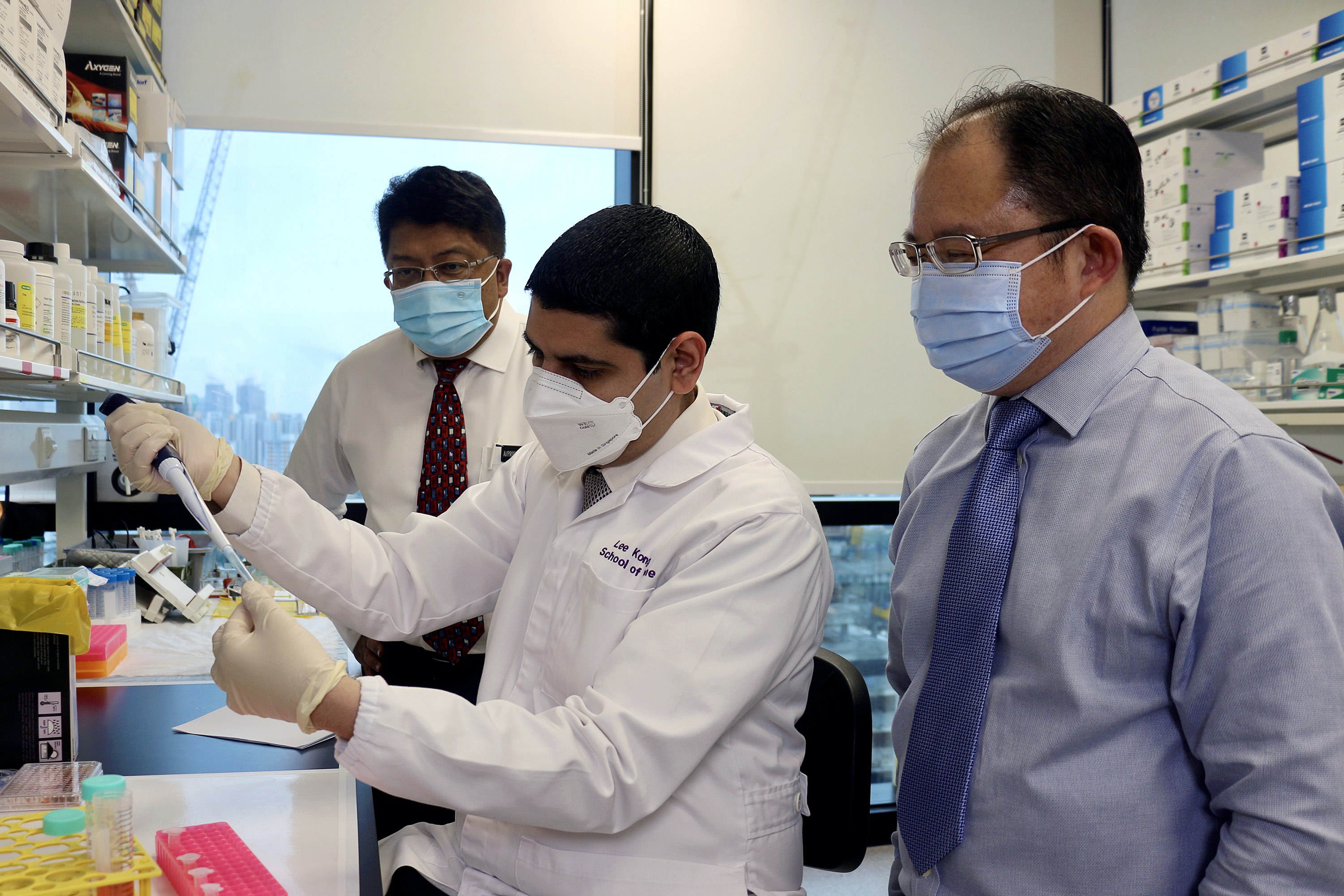
The Respiratory & Infectious Diseases programme focuses on three major axes: bacterial infectious diseases, respiratory diseases, and vector-borne and emerging infectious diseases. It integrates disciplines across microbiology, clinical infectious diseases, and basic biology to exploit technological advances in systems biology and genomics to gain novel insights into pathogen biology and disease pathogenesis. One of the major missions of this programme is to enhance preparedness of pandemics such as COVID-19 and future outbreaks.
In addition to studying and counteracting respiratory and infectious diseases in Singapore and the region, the research theme is developing diagnostic and therapeutic tools as well as training new generations of infectious disease clinicians.
To address respiratory health and disease in Singapore, a national research platform The Academic Respiratory Initiative for Pulmonary Health (TARIPH) was set up by LKCMedicine Associate Professor Sanjay Chotirmall to bring together interdisciplinary teams that share common interests and act as a platform for the exchange of ideas and development of sustainable relationships, providing an organisational framework for academic respiratory research.
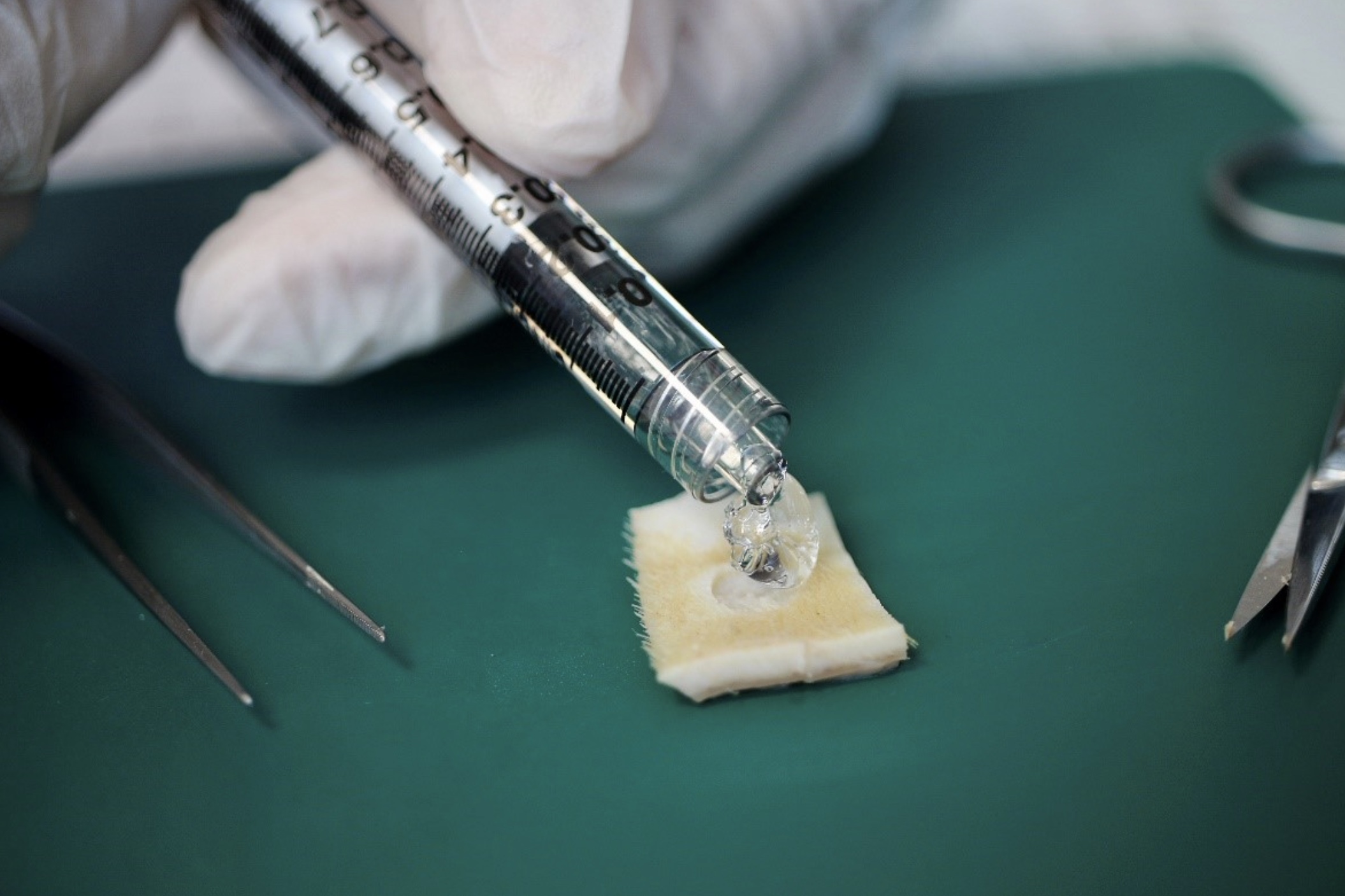
Working towards improving skin health for consumers and patients alike, the Skin Diseases & Wound Repair research theme applies cutting-edge clinical and molecular research techniques to practical questions that people are faced with every day, and develops new interventions based on the insights that are acquired.
Through strong collaborations with the industry, they help consumers maintain healthy skin by providing them with modern skin diagnostics and functional skincare products. The team is also looking into skin conditions prevalent in Asia such as atopic dermatitis and chronic wounds.
One such project is the development of accessible and affordable wound-healing patches that will accelerate healing for patients with chronic wounds. LKCMedicine Professor David Becker is working with the team at the Skin Research Institute of Singapore and local biotech start-up Celligenics to formulate proof-of-concept wound healing patches, gels, or sprays using a regenerative extract developed by Celligenics. Preliminary data suggests a one-third acceleration in wound closure if treated with this extract – highlighting the extract’s potential in addressing the needs of chronic wounds.
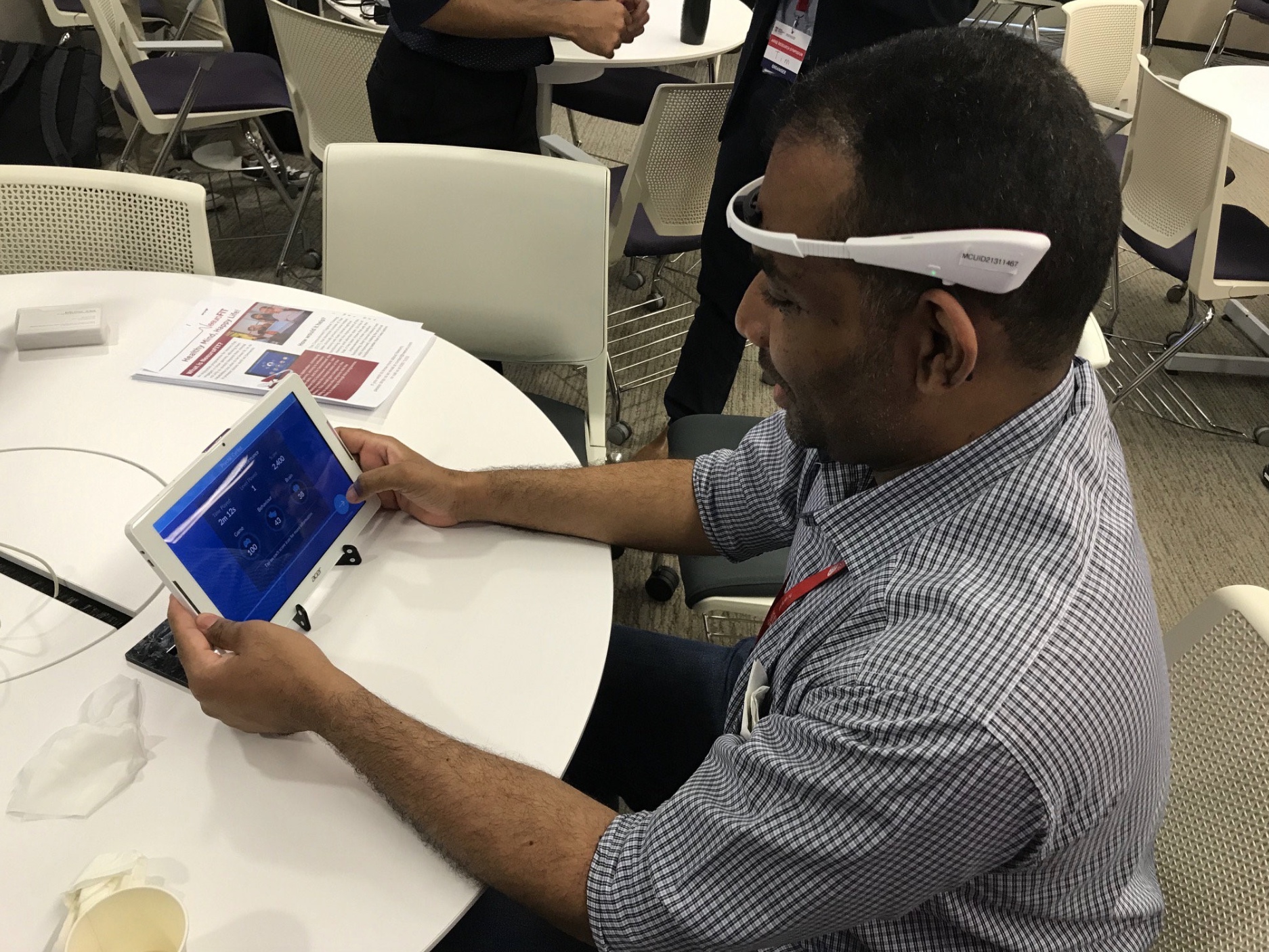
The flagship programmes are supported by four cross-cutting themes including Data Science which leverages on digital health, AI and data-integrative approaches towards achieving the 3 Ps in healthcare – Prediction, Prevention, and Personalisation.
Another cross-cutting theme, Developmental Biology & Regenerative Medicine, investigates the generation, maintenance and repair of the organs of the human body. Using mice, zebrafish and human stem cell-derived mini-organs as experimental models, the researchers aim to elucidate the cellular and molecular processes that will facilitate rejuvenation of organs damaged by ageing and disease.
A relatively new area of research, the Microbiome Medicine theme aims to study the roles of microbes in human health and diseases. It intersects other strengths of LKCMedicine, focusing on translational research relating to various conditions and diseases.
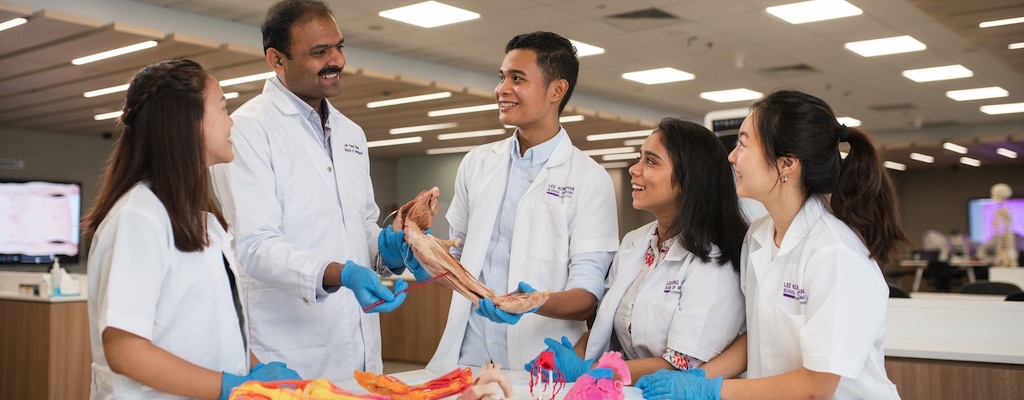
At the same time, the Medical Education Research and Scholarship Unit works closely with international partners to foster a culture of collaborative and scholarly thinking in medical education that is aligned with the ethos of LKCMedicine. There is a strong focus on rigorous, theory-driven research which progresses understanding of individual, systems and societal influences on learning and performance, and applying this knowledge to optimise health professions education.
The School is also working with partners to explore other innovative uses of technology in healthcare. One example is serious games, defined as applications with serious purposes developed using entertainment-driven computer game technologies, to address medical problems.
To promote research in this area, the gAmes for heaLthInnoVationscEntre (ALIVE) was established as a collaboration between LKCMedicine and NHG. It brings together healthcare providers, academic institutions and industry partners with supporting government agencies and community resources for the scientific validation, research and implementation of healthcare serious games initiatives for better healthcare outcomes.
Prof Lim sees the School playing a key role in engaging in cross-disciplinary research to transform healthcare, “We are now making a purposeful attempt to bring everyone on board so that they start speaking a common language. There’s a lot of excellent research work at LKCMedicine and NTU which requires better coordination, consolidation and communication. For those areas that pivoted at LKCMedicine, we want to be the magnet to bring people together from the whole ecosystem.
“When the science is right, everything will fall into place.”
| Women in Science @ LKCMedicine LKCMedicine has launched a new initiative called Women in Science @ LKCMedicine (WIS). This initiative is aimed at empowering female researchers, creating equal opportunities and tackling barriers to support the new generation of women leaders in the field of science. It is also a part of a larger initiative by NTU called Women @ NTU. WIS supports the following principles: · To ensure equity, inclusion, diversity, and belonging in LKCMedicine’s research communication spaces · To promote excellence and fairness · To nurture a culture of tolerance, support, and mutual respect WIS representatives will be planning several activities including training opportunities held in partnership with Women @ NTU and the NTU career office, interactions with clinician scientists from NHG, the launch of the WIS Distinguished speaker series, and the provision of childcare and travel subsidies for female academics attending overseas conferences or other engagements. |














/enri-thumbnails/careeropportunities1f0caf1c-a12d-479c-be7c-3c04e085c617.tmb-mega-menu.jpg?Culture=en&sfvrsn=d7261e3b_1)

/cradle-thumbnails/research-capabilities1516d0ba63aa44f0b4ee77a8c05263b2.tmb-mega-menu.jpg?Culture=en&sfvrsn=1bc94f8_1)

